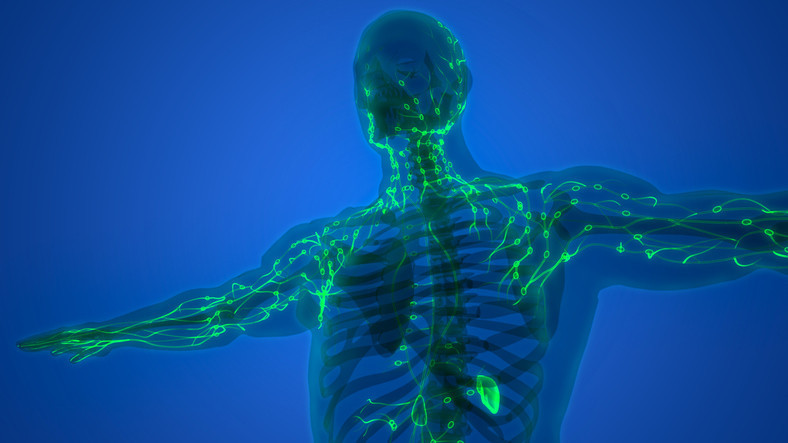
Trying to lose weight? Be careful not to lose muscle

Is your skin problem actually an autoimmune condition?

People with diabetes face higher risk of hearing loss

Antibiotic-free fixes for recurrent UTIs

Musculoskeletal syndrome of menopause: When menopause makes you ache all over

When can older women stop getting mammograms?

To lose weight, especially harmful belly fat, combine diet and exercise

Can men hold off on treating recurring prostate cancer?

The 7 types of rest and why we need them all

What are the early warning signs of cervical cancer?
Harvard Health Blog
Read posts from experts at Harvard Health Publishing covering a variety of health topics and perspectives on medical news.
Articles
Do toddler formulas deliver on nutrition claims?
Formula companies claim that toddler formulas, also known as "follow-up formulas," "transition formulas," or "growing-up milks" offer nutritional benefits to toddlers. But are these products necessary and healthy?
What does a birth doula do?
In the US, more people seem to be seeking out the assistance of a doula when preparing to give birth. While such services may not be covered by insurance, a professional doula can provide emotional and physical support during pregnancy and throughout the birthing process.
Cellulitis: How long does it take to heal on legs?
Cellulitis, a skin infection that often occurs on the lower leg, develops when bacteria enter the body through a cut, bite, or other wound. A new study shows key aspects of healing typically occur within 10 days of treatment, but symptoms can linger for some time after that.
What to do when driving skills decline
Many people experience a decline in their driving skills as they age. While some choose to stop driving, others resist. Whether it's you or a loved one, planning ahead can help you tackle fixable issues, make transitions easier, and avoid harming yourself or someone else.
A tough question: When should an older driver stop driving?
Navigating whether or when an older person should limit or stop driving is tricky. Whether these concerns are about a family member or yourself, it's helpful to be aware of red flags and to understand how driving abilities –– and risk for motor vehicle accidents –– change with age.
Opill: Is this new birth control pill right for you?
The first over-the-counter daily birth control pill was approved by the FDA in 2023. How effective is it? What should you know about how to take it, which side effects may occur, and what to do if you miss a dose? Here are answers to these and other questions about this new nonprescription contraceptive.
Do children get migraine headaches? What parents need to know
Headaches are very common in children and teens. We don't tend to think about children getting migraines, but by age 10 one in 20 children has had one. Symptoms may differ from adults and it's important for parents to understand triggers, helpful treatments, and possible red flags.
Long-lasting C. diff infections: A threat to the gut
Virtually everyone carries the bacteria Clostridioides difficile, or C. diff. But half a million Americans a year develop a serious C. diff infection due to a gut microbiome imbalance. It disproportionately strikes people in hospitals and nursing homes, and can recur repeatedly.
How much sleep do you actually need?
Just how many hours of sleep are enough for you? The answer varies and it might be better to track sleep quality than focus on the number of hours you log each night.
FDA approves new surgical treatment for enlarged prostates
A transurethral resection of the prostate is considered the gold-standard treatment for benign prostatic hyperplasia. But newer, less invasive procedures offer faster recovery times and fewer risks of complications. Earlier this year another new procedure won the FDA's approval.
Kidneys, eyes, ears, and more: Why do we have a spare?
The human body has excess capacity — that is, our organs have more reserve than most of us will ever need. Why are we built with this natural redundancy? And which body parts can safely fail or be removed without impairing health?
Produce prescriptions may promote better heart health
The typical American diet isn't very healthy, and dietary shortfalls are more pronounced among people living in lower-income neighborhoods. A study analyzing data from produce prescription programs suggests that improving access to fresh vegetables and fruits may improve heart health.
Rare and often aggressive, Merkel cell cancer is best caught early
Merkel cell cancer is a rare form of skin cancer that often spreads aggressively to other areas of the body. Here's what to know about it, including who is more likely to get it and how you can take steps to help prevent it.
Which skin creams are most effective for eczema?
A common form of eczema called atopic dermatitis can interfere with daily activities. There are a number of prescription creams available to ease this chronic skin condition, but some are more effective than others, and a recent study compared them.
Wondering what your lymph nodes have done for you lately?
The human body has hundreds of lymph nodes, one part of the immune system that helps defend the body against health threats. They aren't usually noticeable, but they are always working to deal with potential health problems.
Navigating middle school is tough: How parents can help
Middle school can be challenging for many students, with increased time demands, more homework, and social situations to navigate. What can parents do to support their kids and strengthen family bonds during this period in their lives?
Is online gambling harming you?
Online gambling is a popular and growing business, but for millions of Americans, what begins as occasional fun can lead to devastating problems. Trouble with gambling often builds gradually and severe gambling problems share risk factors with substance-related disorders.
Fall shots: Who's most vulnerable to RSV, COVID, and the flu?
Learn which vaccines can help protect you against serious illness and hospitalization from RSV, COVID, and the flu this fall.
Got immunity? Thank your thymus
The thymus gland is very important in the development of the immune system during fetal growth, infancy, and early childhood. As we grow into adulthood the thymus shrinks, but growing evidence suggests the gland may play a role in adult health for much longer than previously thought.
When — and how — should you be screened for colon cancer?
In the US population as a whole, deaths from colon cancer have been declining, but in people under 50 that rate has increased. Most major medical organizations recommend screening beginning at age 45 for people at average risk.
7 organs or glands you may do just fine without
Removing tonsils in childhood was once routine care for healthy children, but is no longer recommended. Why are some organs and glands — appendix, tonsils, adenoids and more — considered expendable and why do we have them if they're not needed?
What color is your tongue? What's healthy, what's not?
The tongue's appearance gives doctors an idea about certain aspects of your health, and its color is an important clue. Some changes in the tongue's color or appearance are signs of health issues and should be seen by a doctor.
Immune boosts or busts? From IV drips and detoxes to superfoods
Ads for products that promise to supercharge the body's immune system make claims that sound too good to be true. But do these products actually work?
The new RSV shot for babies: What parents need to know
RSV is a common virus that just causes cold symptoms for most people. But for infants up to eight months, and for babies and young children with certain health problems, it can be very dangerous. A new immune-boosting shot may help.

Trying to lose weight? Be careful not to lose muscle

Is your skin problem actually an autoimmune condition?

People with diabetes face higher risk of hearing loss

Antibiotic-free fixes for recurrent UTIs

Musculoskeletal syndrome of menopause: When menopause makes you ache all over

When can older women stop getting mammograms?

To lose weight, especially harmful belly fat, combine diet and exercise

Can men hold off on treating recurring prostate cancer?

The 7 types of rest and why we need them all

What are the early warning signs of cervical cancer?
Free Healthbeat Signup
Get the latest in health news delivered to your inbox!
Sign Up

























